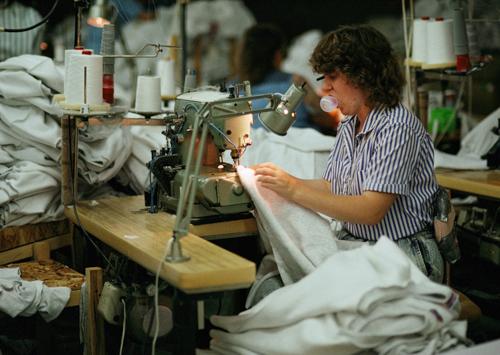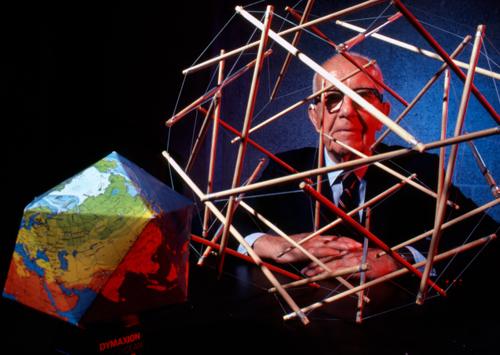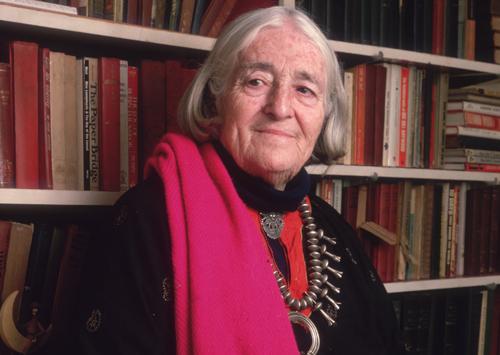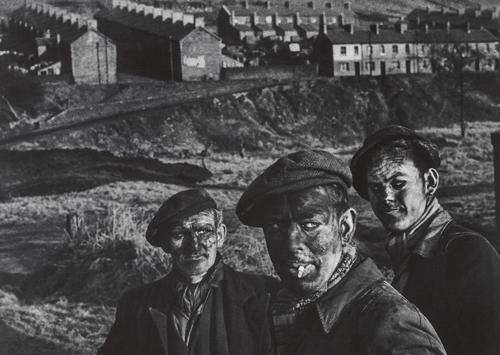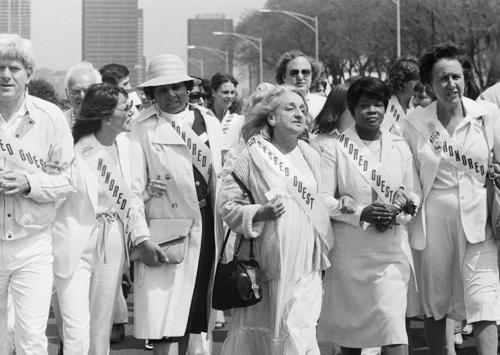Listen to New Voices on Studs Terkel our partnership with 826CHI-here! Read the Story
Showing 1 - 15 of 28 results
-
William Stringfellow discusses politics, race, and theology
Interviewing William Stringfellow, American lawyer and activist. He discusses various topics including religion, social issues, and activism. Includes an interview with Cora Weiss. Content Warning: This conversation has the presence of outdated, biased, offensive language. Rather than remove this content, we present it in the context of twentieth-century social history to acknowledge and learn from its impact and to inspire awareness and discussion.
-
Vivian Adams discusses the beliefs of the Mormon Church regarding the Equal Rights Amendment (ERA)
Jun. 15, 1982 Vivian Adams discusses the reasons behind the Mormon Church's stance against the Equal Rights Amendment (ERA). The discussion includes the beliefs of the Church regarding the roles of men and women, as well as the history and music of the Mormon Church.
-
Three employees from the Hanes factory in Galax, Virginia discuss their work environment
Oct. 28, 1982 Dorothy Andrers, Berlene Bernette, and Fay Williams talk about the rapid and repetitive work they do inspecting Hanes tee shirts. Without a union to protect them, the women said they are treated like animals. They all suffer from tendonitis but the company refuses to acknowledge that their suffering is from work on the job.
-
The Collier Family, Dr. Kawalak, and Augustine Stevens discuss Sierra Leone and the Peace Corps; part 1
Jul. 26, 1966 Discussing Sierra Leone, the Peace Corps, and interviewing the Collier Family, Dr. Kawalak, and Augustine Stevens. They also discuss the languages, culture, religion, and history of Sierra Leone. Includes clips of African music (from Sierra Leone).
-
R. Buckminster (Richard ) Fuller talks with Studs Terkel
Jan. 20, 1965 A sprawling conversation with R. Buckminster Fuller including his great aunt Margaret Fuller, future communication, the nature of work, human nature, and physics.
-
Pat Thompson discusses her background and her TV reporting career
Jan. 14, 1975 A reporter for WMAQ-TV, an NBC affiliate, Pat Thompson talks about her background and her TV reporting career. Ms. Thompson loved to read books, to be in other locales. Going into TV was the result of realizing she received her news mostly from the television.
-
Meridel Le Sueur discusses her book "Ripening: Selected Work, 1927-1980," published in 1981
Mar. 30, 1982 Discussing the book, "Ripening: Selected Work, 1927-1980," with the author Meridel Le Sueur.
-
Laurel Snyder discusses prostitution and the COYOTE organization
Aug. 26, 1980 Laurel Snyder describes to Studs Terkel her journey into prostitution and her involvement in the organization COYOTE, which advocates for the rights of sex workers and the decriminalization of prostitution.
-
Juliet Mitchell discusses women, family, and oppression
Apr. 25, 1971 An interview with teacher and lecturer, Juliet Mitchell, who is a Marxist. She shares her support for the women's movement and talks about issues that affect women especially gender inequality. Juliet also refers to some comparisons between British and American women's movement.
-
Jane Stern discusses her book "Trucker: A Portrait of the Last American Cowboy"
Dec. 18, 1975 Jane Stern discusses her book "Trucker: A Portrait of the Last American Cowboy" and the life, culture, and myths of truck drivers. Studs plays "Hard Travelin'" - Woody Guthrie (1944) and “Convoy” - C. W. McCall (1975). This program includes an excerpt from an interview with a truck driver named Paul Deitch.
-
Interviewing labor and women's rights activist, and educator June Rostan
Jul. 1, 1992 Program includes an excerpt of a 1978 interview with songwriter and labor rights activist Florence Reece.
-
Interviewing Aileen and W. Eugene Smith
May. 22, 1975 Aileen and Eugene Smith discuss their photographic essay book, "'Minamata', Words and Photographs," documenting the mercury poisoning of residents and their legal battles with the polluting company Chisso.
-
Illinois state representative Susan Catania, Clara Day and Marguerite Klimkowski discuss the Equal Rights Amendment (ERA)
Nov. 1, 1978 Discussing the Equal Rights Amendment with Illinois Representative Susan Catania and political activists Clara Day and Margaret Klimkowski.



